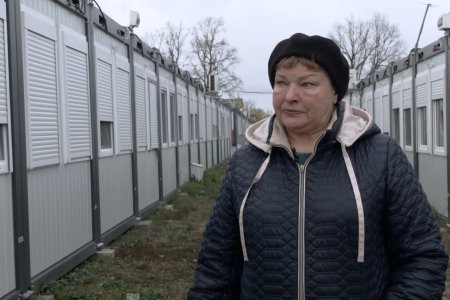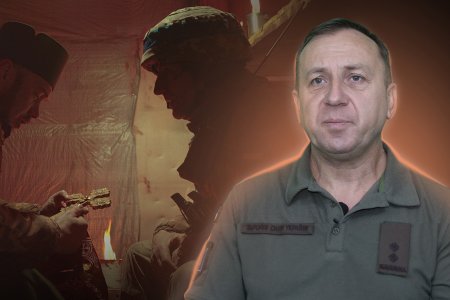I am a resident of Shakhtarsk, which is now an occupied territory. We moved to Kramatorsk in 2015, but the war caught up with us there, too. Now I live in Borodianka. The war for us began in Kramatorsk at half past four in the morning on 24 February with the shelling of the airfield. It is about one and a half kilometers from us.
On 6 March, my children left Kramatorsk. I was left alone. It was, of course, scary. There was constant shelling, and you didn’t know when to expect them — day, night, or at what time. The shelling was such that the house shook. So I lived in Kramatorsk until 20 July, then came to Borodianka.
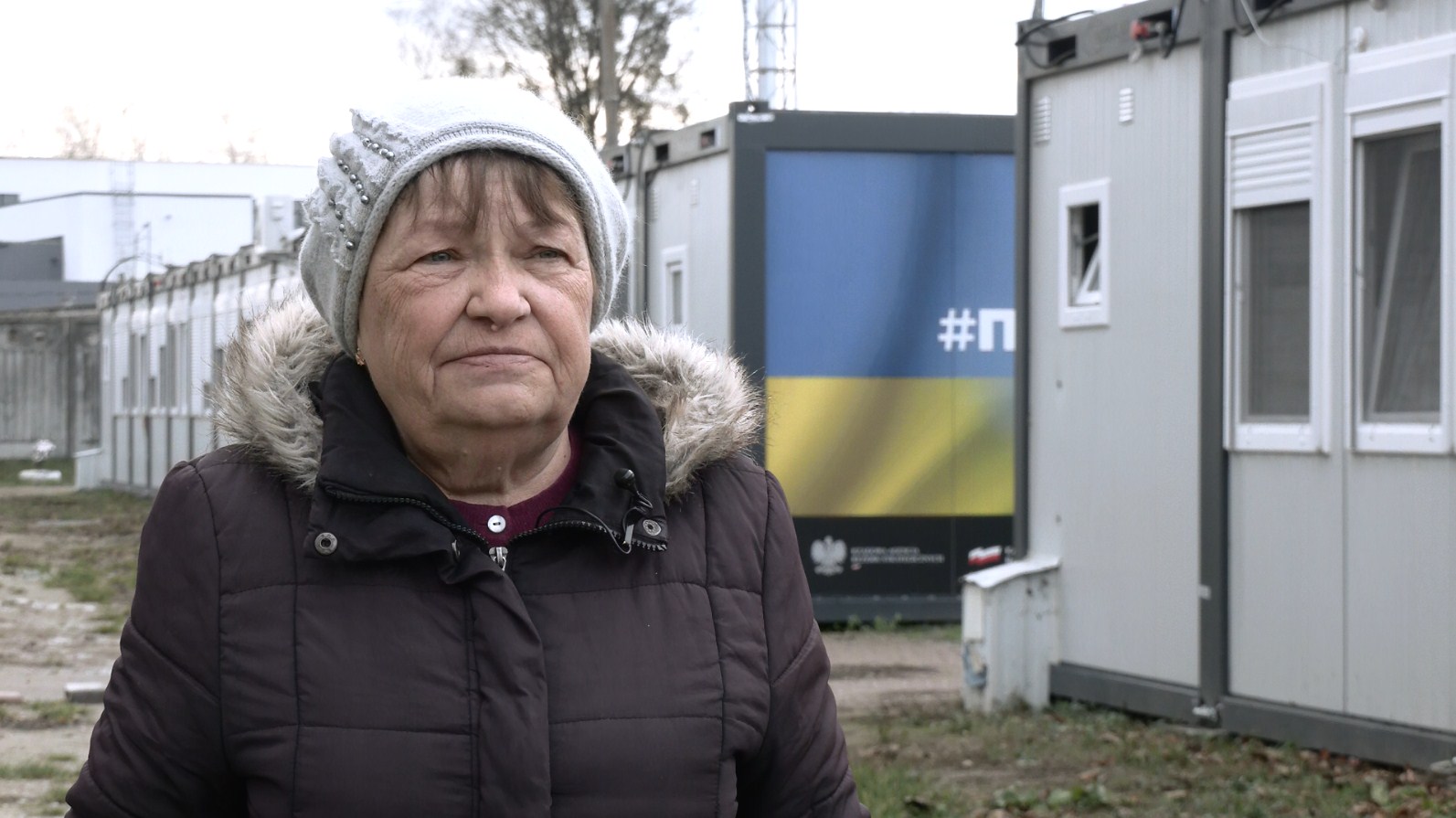
In Kramatorsk, there were deaths as a result of shelling of residential buildings. During each shelling, people suffered. Of course, there was an immense tragedy when the Russians hit the station in Kramatorsk. There were a lot of dead and wounded there. These were people who were going to evacuate. They were fired upon. It was a terrible day. That day, I was just on the street. The explosion was such that the ground shook under our feet.
In general, they shoot regularly. Now, there are very few people left in Kramatorsk. For example, we have 36 apartments per one entrance. There are only three or four apartments left where people still live. Everyone left. Everyone was on edge. You never calmed down there. You were always waiting for it to hit. Day, night, morning, evening — It wasn’t easy.
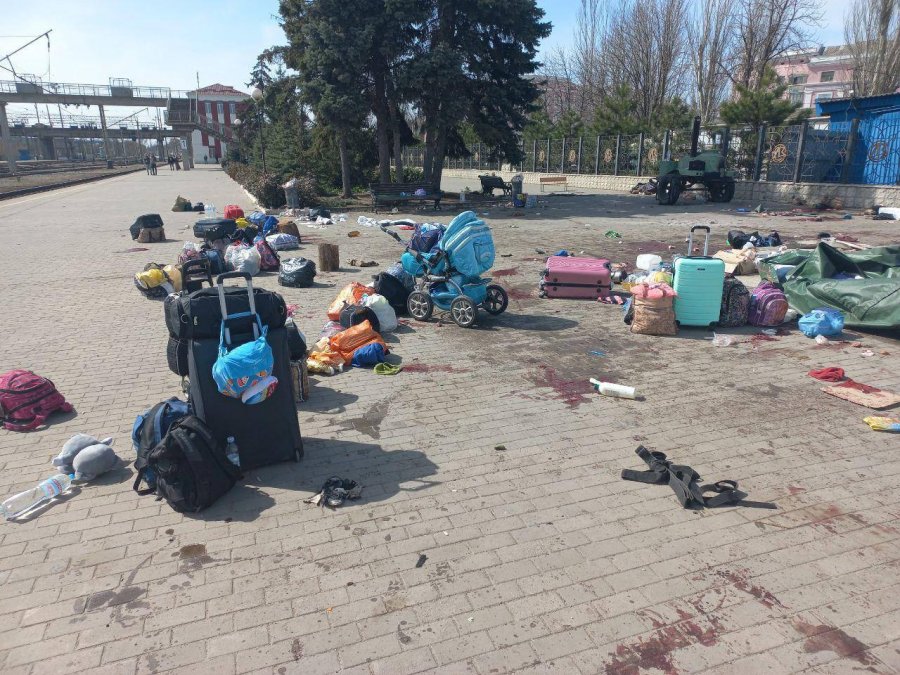
When the war began, sedatives were sold out in Kramatorsk. It was impossible to buy it in pharmacies. Subsequently, medicines began to appear. Thanks to them, we lived. As for the products, in principle, we had them because we immediately bought meat, cooked stew, and preserved it, among other things. Yes, there were problems with bread.
In May, both of the gas pipelines were interrupted. It was hard without gas. Well, it’s okay, the microwave saved me. That’s how we survived. Some stores closed but then began to open. Then even two supermarkets opened. Well, you could buy food, I won’t say anything. Even hairdressers opened, and the hospital also worked.
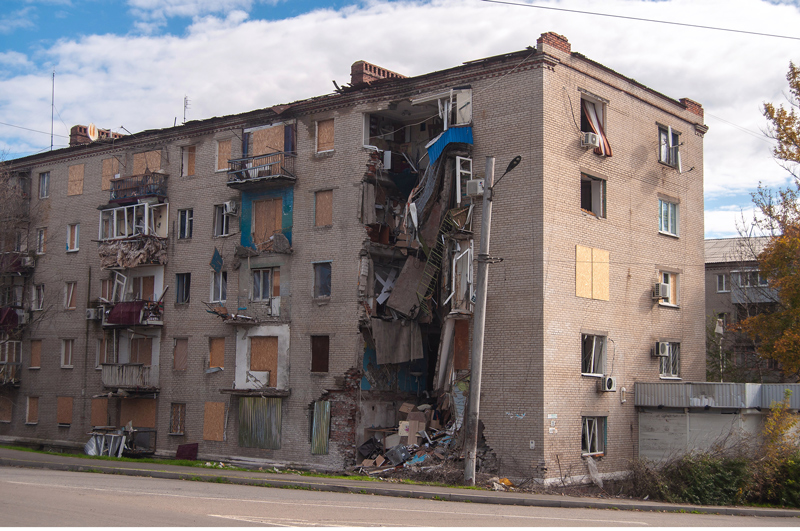
Even before the invasion, my daughter constantly asked: “Mom, will there be a war?” I kept saying no. I was sure it wouldn’t. Then, I was sure that it would end in the spring. Then, I thought that it would end in the fall. Now, I believe again it will end in the spring. I live in the hope that it will end and we will return home. And when I return to Shakhtarsk, only God knows. My daughter and husband stayed there. He arrived just before the war but was unable to go back.
My daughter’s friend lives in Borodianka, in a modular town. She recommended that I come here, and they accepted me. It is my second year living here. Well, hopefully, I’ll be back home in the spring. For many years after moving from Shakhtarsk, we rented apartments. Then, with difficulty, we bought our apartment, selling everything we could and borrowing money. We lost everything in Shakhtarsk, and now we are terrified of losing everything in Kramatorsk. We can’t do it over again.


